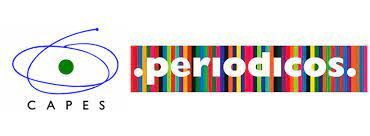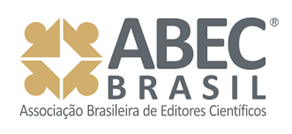GAMIFICAÇÃO COMO ALTERNATIVA DE APRESENTAÇÕES ORAIS EM EVENTOS DE ENSINO DE CIÊNCIAS: RELATO DE EXPERIÊNCIA
DOI:
https://doi.org/10.22407/2176-1477/2020.v11i1.1228Palavras-chave:
JALEQUIM, lúdico, gamificaçãoResumo
É um consenso na literatura de que o uso do lúdico em sala de aula permite a promoção de uma aprendizagem ativa, desenvolve habilidades mentais de diferentes níveis, facilita a participação de alunos com diferentes estilos de aprendizagem, incentiva o ensino entre pares e a aprendizagem colaborativa. Diante dessas contribuições, consideramos que podemos usar abordagens lúdicas para outras atividades, além da sala de aula. Assim, neste artigo, temos como objetivo relatar a experiência de utilização de um jogo de trilha (denominado TAG) em uma tentativa de gamificar o momento de apresentação oral de trabalhos no JALEQUIM Level III, realizado na Universidade da Integração Latino-Americana. Nos resultados, além de apresentar o processo de concepção e produção do jogo, coletamos relatos de três coordenadores de sessão, a fim de, a partir de suas experiências, analisarmos a receptividade e contribuição da proposta. Assim, constamos as contribuições e limitações da utilização da TAG no referido evento.
Referências
ABOALELA, R.; KHAN, J. Model of Learning Assessment to Measure Student Learning: Inferring of Concept State of Cognitive Skill Level in Concept Space. 2016 Anais... 3rd International Conference on Soft Computing & Machine Intelligence (ISCMI).
ABT, C. C. Serious Games. Viking Press, 1970.
AKCAOGLU, M.; KALE, U. Teaching to teach (with) game design: Game design and learning workshops for preservice teachers. Contemporary Issues in Technology and Teacher Education, 16(1), 60-81, 2016.
ALMEIDA, C. M. M.; PROCHNOW, T. R.; LOPES, P. T. C. O uso do lúdico no ensino de ciências: jogo didático sobre a química atmosférica. Revista Góndola, Enseñanza y Aprendizaje de las Ciencias, 11(2), 228-239, 2016.
ATTIA, P. The Full History of Board Games, 2016. Recuperado em <https://medium.com/swlh/the-full-history-of-board-games-5e622811ce89>. Acesso em: 25 abril 2017.
BOLLER, S.; KAPP, K. Jogar para aprender – Tudo o que você precisa saber sobre o design de jogos de aprendizagens eficazes. São Paulo: DVS Editora, 2018.
BROADHEAD, P.; HOWARD, J.; WOOD, E. (Orgs.). Play and learning in the early years. London: Sage Publications, 2010.
BUCKLEY, P.; DOYLE, E. Gamification and student motivation. Interactive Learning Environments, 24(6), 1162–1175, 2014.
BURKE, B. Gamificar – Como a gamificação motiva as pessoas a fazerem coisas extraordinárias. São Paulo: DVS Editora, 2015.
CAILLIOIS, R. Los juegos y los hombres, la máscara y el vértigo. (J. Ferreiro, Trad.) Bogotá, CO: Editorial Fondo de Cultura Económica, 1997.
CASTIBLANCO, O. El pensamiento crítico en la formación de profesores de ciencias naturales. Góndola, Enseñanza y Aprendizaje de las Ciencias, 14(1), 5-6, 2019.
CHENG, M.-T.; CHEN, J.-H.; CHU, S.-J.; CHEN, S.-Y. THE use of serious games in science education: a review of selected empirical research from 2002 to 2013. Journal of Computers in Education, 2(3), 353–375, 2015.
CLEOPHAS, M. G. Construindo espaços para uma aprendizagem lúdica com base na teoria da aprendizagem experiencial (TAE). In: LAPA, W. P. F. M.; SILVA, J. C. S. (Orgs.). Jogos no Ensino de Química: fundamentos e aplicações. Curitiba: CRV, p. 37-51, 2018.
DETERDING, S.; DIXON, D.; KHALED, R.; NACKE, L. From game design elements to gamefulness: Defining "gamification". Anais... Proceedings of the 15th International Academic MindTrek Conference, 9-15, 2011.
DOMINGUEZ, A.; SAENZ-DE-NAVARRETE, J.; DE-MARCOS, L.; FERNANDEZ-SANZ, L.; PAGES, C.; MARTINEZ-HERRAIZ, J. Gamifying learning experiences: Practical implications and outcomes. Computers & Education, 63, 380-392, 2013.
FORAWI, S. A. Standard-based science education and critical thinking. Thinking Skills and Creativity, 20, 52-62, 2016.
GAGNON, JR. G. W.; COLLAY, M.; SCHMUCK, R. A. Constructivist learning design: Key questions for teaching to standards. Corwin Press, 2006.
HAMARI, J.; KOIVISTO, J.. SARSA H. Does Gamification Work? — A Literature Review of Empirical Studies on Gamification. 2014, Anais... 47th Hawaii International Conference on System Sciences, 3025–3034.
HENRICKS T. S. Play as ascending meaning: Implications of a general model of play. In: Reifel, S. (Ed.). Play contexts revisited. Stamford: Ablex Publishing Group, 257-277, 1999.
HERRERA, M. P. M.; BARBOSA, R. H. El juego y sus posibilidades en la enseñanza de las ciencias naturales. Innovación Educativa, 14(66), 41-63, 2014.
HUIZINGA, J. Homo ludens. 4. ed. São Paulo: Perspectiva, 2000.
JAGUŠT, T.; BOTIČKI, I.; SO, H-J. Examining competitive, collaborative and adaptive gamification in young learners' math learning. Computers & Education, 125, 444-457.
LIEBERMAN, J. N. Playfulness in Play and the Player: A Behavioral Syndrome Viewed in Relationship to Classroom Learning. Contemporary Educational Psychology, 1, 197-205, 1976.
LISTER, M. C. Gamification: The effect on student motivation and performance at the post-secondary level. Issues and Trends in Educational Technology, 3(2), 1-22, 2015.
MEKLER, E. D.; BRÜHLMANN, F.; TUCH, A. N.; OPWIS, K. Towards understanding the effects of individual gamification elements on intrinsic motivation and performance. Computers in Human Behavior, 71, 525-534, 2017.
MYNBAYEVA, A.; SADVAKASSOVA, Z.; AKSHALOVA, B. Pedagogy of the Twenty-First Century: Innovative Teaching Methods. New Pedagogical Challenges in the 21st Century - Contributions of Research in Education, 3-20, 2018.
RAMOS, E. S.; SANTOS, F. A. C.; LABURÚ, C. E. O uso da ludicidade como ferramenta para o Ensino de Química Orgânica: o que pensam os alunos. ACTIO, Curitiba, 2(2), 119-136, 2017.
RICE, L. Playful Learning. Journal for Education in the Built Environment, 4(2), 94–108, 2009.
Rieber, L. P. Seriously considering play: Designing interactive learning environments based on the blending of microworlds, simulations, and games. Educational Technology Research and Development, 44(2), 43–58, 1996.
SAILER, M.; HENSE, J. U.; MAYR, S. K.; MANDL, H. How gamification motivates: An experimental study of the effects of specific game design elements on psychological need satisfaction. Computers in Human Behavior, 69, 371–380, 2017.
SALEN, K.; ZIMMERMAN, E. Rules of Play: Game design fundamentals. Mit Press, Cambridge, 2004.
SILVA, A. C. R. Importância da Aplicação de Atividades Lúdicas no Ensino de Ciências para Crianças. R. B. E. C. T., 8(3), 84-103, 2015.
Soares, M. H. F. B. Jogos e Atividades Lúdicas no Ensino de Química: uma discussão teórica necessária para novos avanços. REDEQUIM, 2(2), 5-13, 2016.
STOTT, A.; NEUSTAEDTER, C. Analysis of Gamification in Education, Technical Report, Connections Lab, Simon Fraser University, Surrey, BC, Canada, April. 2013. Recuperado de http://clab.iat.sfu.ca/pubs/Stott-Gamification.pdf. Acesso em: 05 abril 2017.
SUTTON-SMITH, B. The ambiguity of play. Boston: Harvard University Press, 2001.
TINEDI, V.; YOHANDRI, Y.; DJAMAS, D. How Games are Designed to Increase Students’ Motivation in Learning Physics? A Literature Review. IOP Conference Series: Materials Science and Engineering, 335, 1-6, 2018.
VOLPATO, G. Jogo e brinquedo: reflexões a partir da teoria crítica. Educ. Soc., Campinas, 23(81), 217-226, 2002.
WERBACH, K.; HUNTER, D. For the win: how game thinking can revolutionize your business. Philadelphia: Wharton Digital Press, 2012.
Xu, F., Weber, J. & Buhalis, D. Gamification in tourism. Information and Communication Technologies in Tourism, 21–24 Jan. Dublin, Ireland: Springer International Publishing, 525–537, 2014.
Downloads
Publicado
Como Citar
Edição
Seção
Licença
Copyright (c) 2020 João Roberto Ratis Tenório da Silva, Maria da Graça Cleophas, Eduardo Luiz Dias Cavalcanti

Este trabalho está licenciado sob uma licença Creative Commons Attribution-NonCommercial 4.0 International License.
O autor responsável pela submissão representa todos os autores do artigo, e se compromete a enviar como documento suplementar uma carta de consentimento com a assinatura de todos os autores informando que tem a permissão para a submissão do texto assim como assegura que não há violação de direitos autorais e nem qualquer tipo de plágio (incluindo autoplágio).









